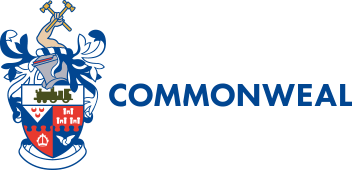
A Level History – The Twentieth Century Revisited
Head of Subject
Miss E Ballance
Head of History
eballance@commonweal.co.uk
Overview
History is a story. What makes it important, valuable and engaging is that it is about us. It helps us to understand where we were in the past, where we are now and where we may be in the future. If humanity is to progress, everyone should study history. Aside from that it is just immensely interesting.
-
Course Title
A Level History – The Twentieth Century Revisited
-
Exam Board and Specification No.
AQA GCE History
What do I need to have studied/have knowledge of?
It is helpful, but not essential, to have studied history at GCSE level. You should have achieved a grade 6 or better to be fully equipped to take on the A Level.
What will I learn on this course?
You will study three units. Units 1 and 2 in Year 12 and Units 1, 2 and 3 in Year 13 as follows:
Unit 1 – The Making of a Superpower: USA, 1865-1975.
- How did government, political authority and political parties change and develop?
- In what ways did the economy and society of the USA change and develop?
- How did the role of the USA in world affairs change?
- How important were ideas and ideology?
- How united were the States during this period?
- How important was the role of key individuals and groups and how were they affected by developments?
Unit 2 – The Making of Modern Britain 1951-2007
This unit promotes an understanding of change and continuity over approximately 50 years of British history, during which Britain enjoyed a period of post-war affluence and boom, followed by an era of reaction. Candidates will be able to demonstrate an understanding of important individuals such as Macmillan, Wilson, Thatcher and Blair, and the interrelationship of such individuals with the ideas that helped bring about the developments in Britain’s changing relations with the world after 1951 and the enduring debate over European involvement. Candidates will also examine other factors such as the impact of government policies on industrial relations, trade unions and the nature of the relationship between the state and its citizens. As a result of the study of the period as a whole, candidates will be able to demonstrate how Britain had changed by 2007.
Unit 3 – A coursework topic on a subject of your choice before the year 1800.
What key skills will I develop?
During the course you will learn:
- about the significance of events, individuals, issues and societies in history
- how and why societies have changed over time
- about the theories of historians and the language that they use to discuss their ideas
- to understand the nature of historical evidence and the methods used by historians to analyse and evaluate it
- to develop and understanding of how the past has been interpreted and represented
- to express your own historical ideas confidently and effectively
How will I be assessed?
You will be assessed as follows:
- Unit 1 Exam at the end of Year 13 = 40% of your final mark.
- Unit 2 Exam at the end of Year 13 = 40% of your final mark
- Unit 3 Coursework during Year 13 = 20% of your final mark
What could this course lead to?
Ideally you should go on to study history at university. Although history should be studied for its own sake, employers recognise the value of a qualification in history. As a result it can lead to a career in education, journalism, the legal professions, politics, local and national government, the civil service, the museums and library service and many other sectors of the jobs market.
Are there any additional costs for this course?
You will need to purchase two textbooks.
Who do I contact if I have any further questions?
Miss E Ballance
Head of History
eballance@commonweal.co.uk
Curriculum Maps
History Year 13 Britain Curriculum Map
289.00 KB – Updated September 13, 2023
History Year 12 Britain Curriculum Map
162.19 KB – Updated September 13, 2023
A Level History USA: The Making of a Superpower Year 13
106.21 KB – Updated October 13, 2020
A Level History USA: The Making of a Superpower Year 12
247.75 KB – Updated October 13, 2020